Dr. Tran Viet Anh, Vice Principal in charge of Hung Vuong University, Ho Chi Minh City (DHV), discussed the vision and strategy to make DHV the leading startup university in Vietnam and Asia.
* Reporter: The concept of startup university model is still new in Vietnam. Can you share about the characteristics of startup university?
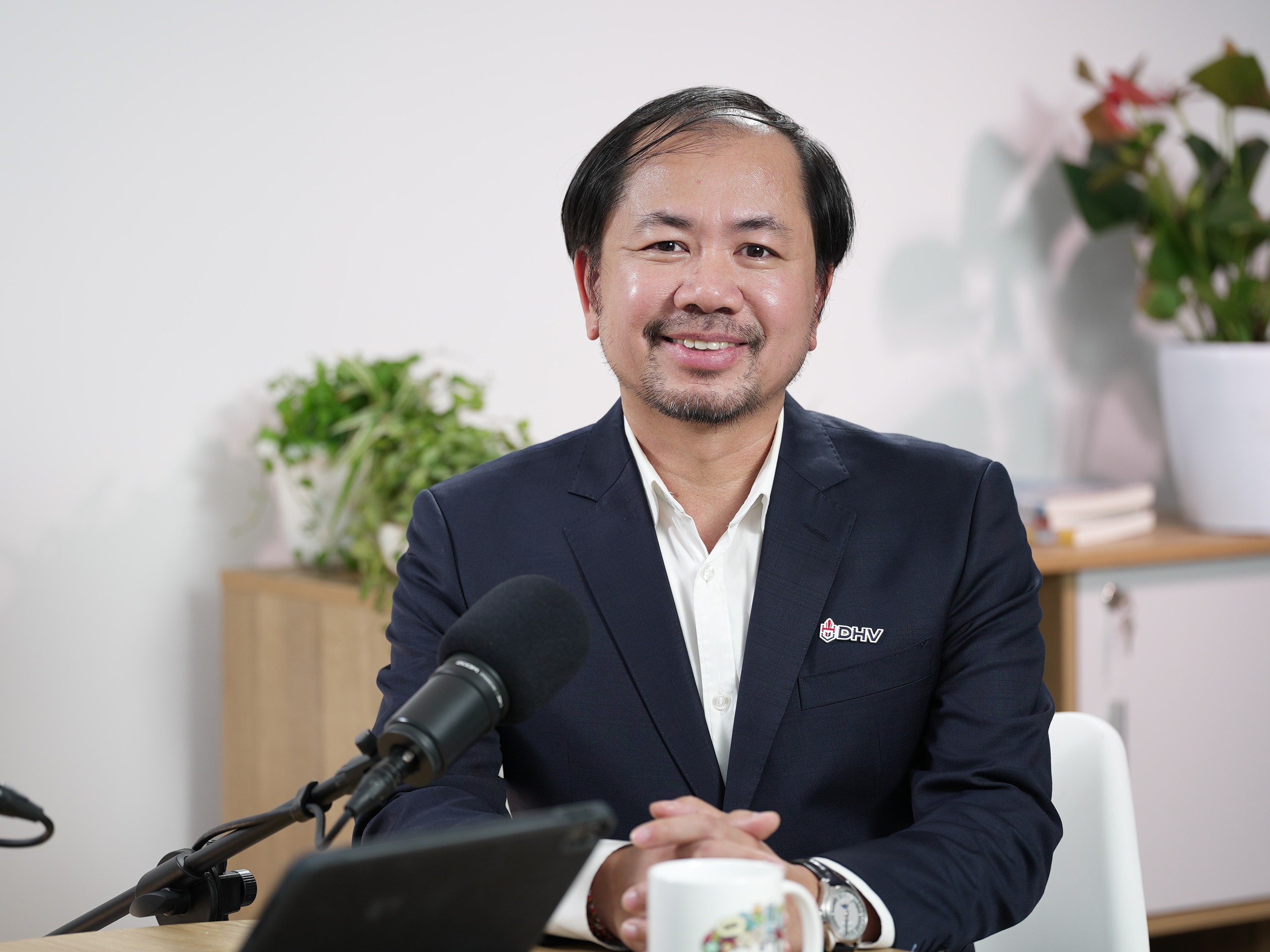
Dr. Tran Viet Anh
- Dr. Tran Viet Anh: The characteristic of the Startup University is the combination of academic training in the classroom with the development of practical skills for students. The training program is designed based on the actual needs of the labor market, focusing on specialized knowledge of startup programs and innovation in business.
At Hung Vuong University, Ho Chi Minh City (DHV), we promote cooperation programs with domestic and foreign enterprises, helping students have the opportunity to experience, learn, and get acquainted with the working environment right from their time in the classroom.
Another feature of the startup university model that I think is extremely important is building an ecosystem to support startups - including incubators, startup investment funds and networks connecting with investors, entrepreneurs and consultants for training programs.
* To achieve the goal of becoming a leading startup university, what specific strategies has DHV built, sir?
- With the vision of becoming the leading startup university in Vietnam, we have built a very clear strategy. In which, the training program is the first and most important thing, with more than 70% of the time focused on developing practical skills and practical research.
DHV students not only study theory but also participate in practical sessions at enterprises. The school builds a multicultural learning environment, connecting students, lecturers and enterprises through practical events such as seminars, workshops and talk shows. In addition to extracurricular activities, students also participate in physical activities such as camps, sports... to improve their health and spirit, helping them study and develop better.
DHV has also signed cooperation agreements with more than 100 strategic enterprises, inviting CEOs and business presidents to contribute to the training program to ensure it meets the needs of the labor market. The school also develops a startup ecosystem with a startup incubator, an investment fund of more than 1 million USD and organizes startup competitions for students. Notable success is that students won first prize in the international student startup competition in Malaysia in 2023.
* How do DHV's current training programs meet the needs of the labor market and the requirements of the startup university model?
- I affirm that DHV has been constantly making efforts to meet the needs of the labor market by focusing on practice, with more than 70% of learning content being applied in practice.
However, we also realize that there is still much work to be done to further improve the school's training programs. We will continue to listen to the opinions of students, businesses and experts to adjust and improve the training programs, to better meet the needs of the labor market and the requirements of the startup university model.
* What cooperative relationships has the school established with businesses to create conditions for students to intern, start a business and connect with the labor market?
- As discussed above, DHV has established many strategic cooperative relationships with more than 100 enterprises in different fields to create conditions for students to intern, start a business and connect with the labor market.
Through this cooperation, students can experience a real working environment, gain experience and develop professional skills, while expanding their network of relationships with potential businesses and partners.
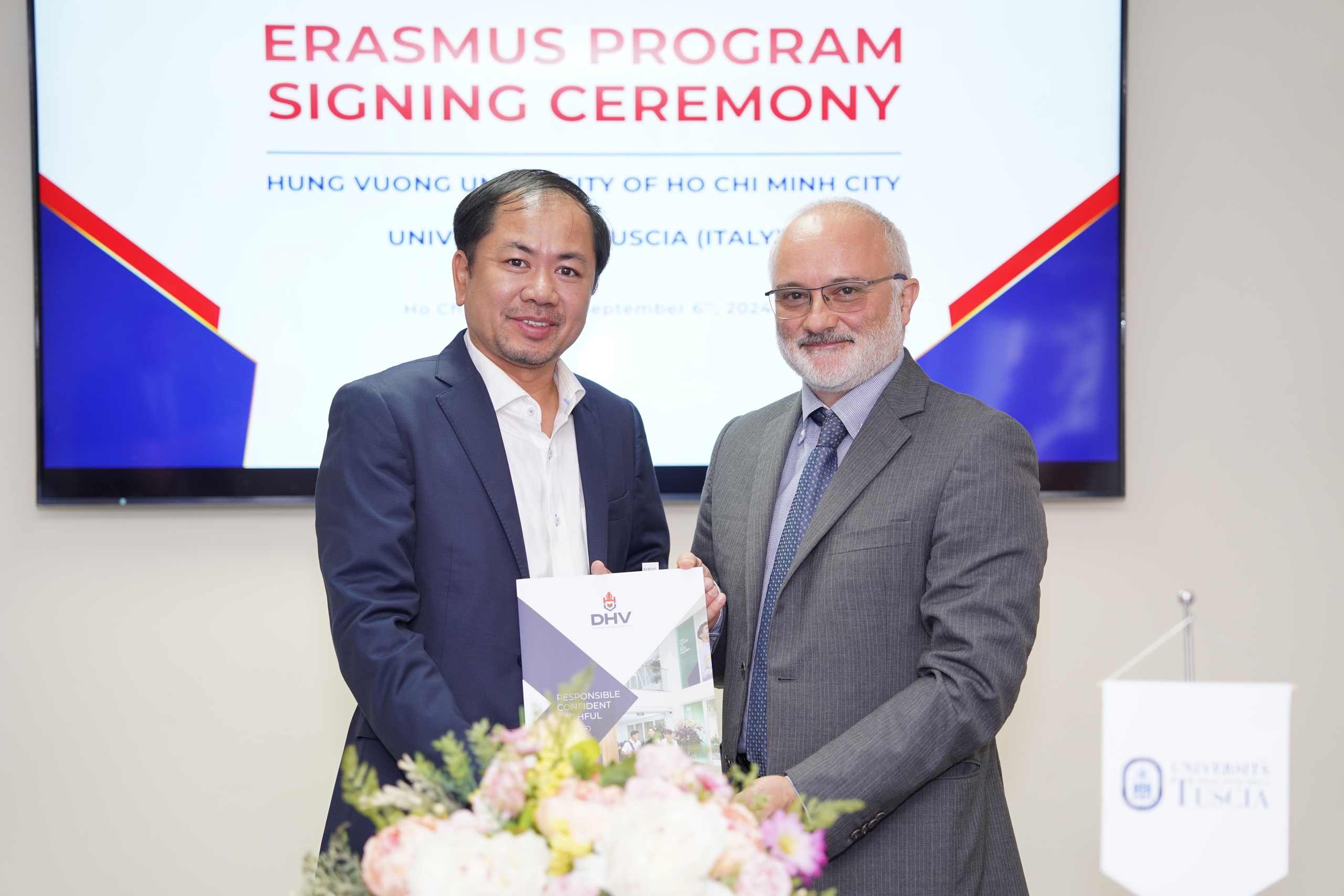
Dr. Tran Viet Anh (left) signed a cooperation agreement with a representative of Tuscia University (Italy)
* Sir, what are the research and application areas that DHV plans to develop in the coming time to support the goal of becoming a startup university?
- To support the goal of becoming a leading startup university, we aim to develop research and application fields such as: Information and communication technology; developing artificial intelligence (AI) applications in many related subjects and majors.
In addition, research and develop IoT systems to connect and control smart devices; apply blockchain technology to the fields of finance, supply chain management, data security; build data analysis models to make smart business decisions; research and develop security solutions to protect information and systems.
In addition, the school also focuses on research programs in business administration, marketing and financial management, aiming to equip students with the necessary skills and knowledge to lead and manage effectively in a start-up environment.
* What are the biggest challenges that DHV is facing in achieving its goals? What opportunities are opening up for the school in the future, sir?
- Being a pioneer has never been easy and we also know that there will be countless challenges and difficulties that DHV will face. The first challenge is the fierce competition between universities. Vietnam currently has many universities and most of them are developing rapidly, creating greater competitive pressure, requiring DHV to continuously improve the quality of training and services.
The next challenge is financial resources. To implement programs to support startups and cooperate with businesses, schools need financial resources and reasonable investment. This is sometimes difficult in the context of limited finances.
Another challenge is maintaining the relevance of the training program to the requirements of the labor market. Because the world is constantly changing, the demand for labor also changes every day, the school needs to be flexible to adjust the training program to suit the new trends. In addition, we also have to constantly improve the teaching quality of the teaching staff and expand international cooperation.
In addition, DHV is also facing many opportunities. The increasing demand for entrepreneurship and innovation from students and society has opened up opportunities for the school to develop relevant training programs, attracting learners. Expanding cooperation with international universities and organizations will also create opportunities to learn from experience, access new technology and improve training quality.
Many criteria for evaluation
l What criteria does DHV have to evaluate the success of its startup programs and of its own goal of becoming a leading startup university?
- With the set goals, DHV has identified specific criteria.
For example, the success rate of start-up projects; the level of participation, the number of students participating in start-up programs, competitions and incubation activities; cooperation with businesses, assessment of the level of cooperation with businesses and external organizations; feedback from students and alumni; access to resources and finance...

Students of Hung Vuong University, Ho Chi Minh City
DHV has many financial support policies for student start-up projects, such as investment funds, loan support, incubation programs...
DHV has implemented many financial support policies for student start-up projects. Specifically, the school has a Start-up Incubator Room, with an investment fund of up to 1 million USD, to support start-up projects of students and staff. This fund not only provides investment capital but also supports in-depth consulting services to help projects develop from idea to practice.
Source: https://nld.com.vn/dhv-huong-den-truong-dai-hoc-khoi-nghiep-hang-dau-196241010183647693.htm





![[Photo] 60th Anniversary of the Founding of the Vietnam Association of Photographic Artists](/_next/image?url=https%3A%2F%2Fvphoto.vietnam.vn%2Fthumb%2F1200x675%2Fvietnam%2Fresource%2FIMAGE%2F2025%2F12%2F05%2F1764935864512_a1-bnd-0841-9740-jpg.webp&w=3840&q=75)
![[Photo] National Assembly Chairman Tran Thanh Man attends the VinFuture 2025 Award Ceremony](/_next/image?url=https%3A%2F%2Fvphoto.vietnam.vn%2Fthumb%2F1200x675%2Fvietnam%2Fresource%2FIMAGE%2F2025%2F12%2F05%2F1764951162416_2628509768338816493-6995-jpg.webp&w=3840&q=75)





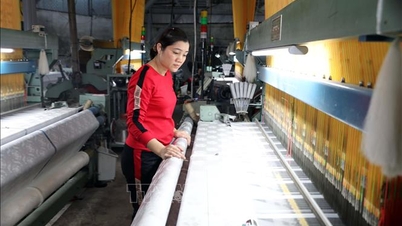
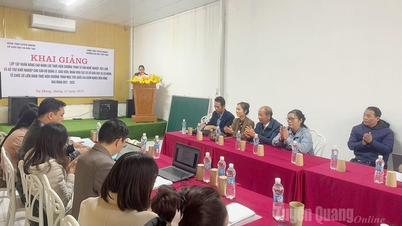



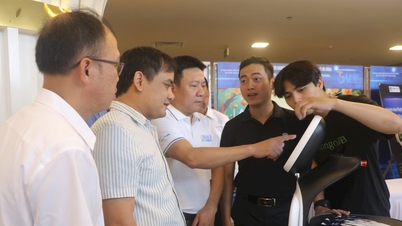





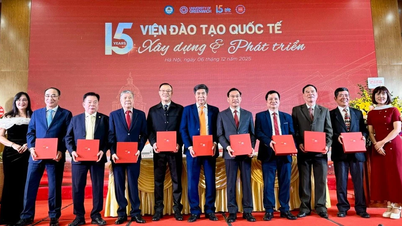






























































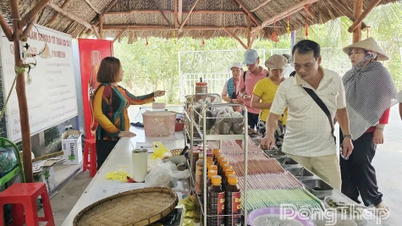

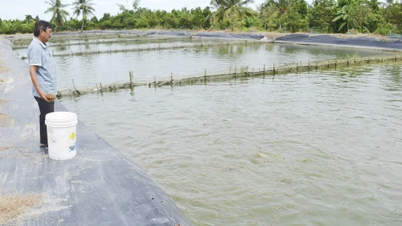
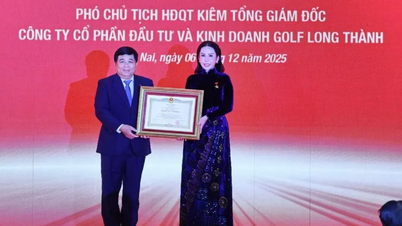
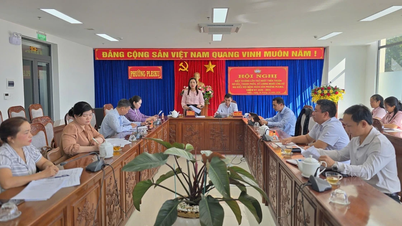




















Comment (0)